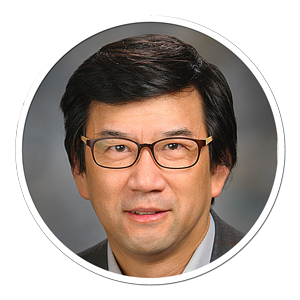


Dr. Cassian Yee is professor in the Departments of Melanoma Medical Oncology and Immunology, Co-Director of the Adoptive Cellular Therapy Platform, Scientific Director of the Cell Therapy Manufacturing Facility, and Director of Solid Tumor Cell Therapy at The University of Texas MD Anderson Cancer Center. He received his medical training in Canada, residency at Stanford, and fellowship at Fred Hutchinson Cancer Research Center. He is an elected member of the American Society of Clinical Investigators, recipient of Clinical Translational Scientist Award from Burroughs Wellcome Fund, CPRIT Clinical Investigator award, co-Leader of the Stand Up to Cancer-American Association for Cancer Research/Cancer Research Institute Immunotherapy Dream Team, and Member of the Parker Institute for Cancer Immunotherapy.
Over the last 20+ years, Dr. Yee has pioneered a form of ACT, known as Endogenous T Cell (ETC) therapy, using peripheral blood to generate antigen-specific memory T cells for the treatment of patients with cancer. His lab has performed several seminal first-in-human studies using a well-defined, uniform population of ex vivo expanded antigen-specific T cells to delineate the requirements for effective immune-based therapies. He is corresponding or lead author in more than 80 publications, many in top-tier journals including The New England Journal of Medicine, Nature, Science, Science Immunology, Science Translational Medicine, Nature Medicine, Journal of Clinical Oncology, Journal of Experimental Medicine, Gastroenterology, and Cancer Immunology Research. Dr. Yee holds more than 15 worldwide patents on ex vivo generation of antigen specific T cells, memory reprogramming and antigen discovery and seeks to extend immunotherapy-based cancer treatments globally. His work converges multidisciplinary and collaborative approaches in bioengineering, metabolism, molecular immunology and cellular biology to develop effective immunotherapy strategies and adoptive cellular therapy, in particular, as a treatment modality for patients with malignant diseases.
Sessions: